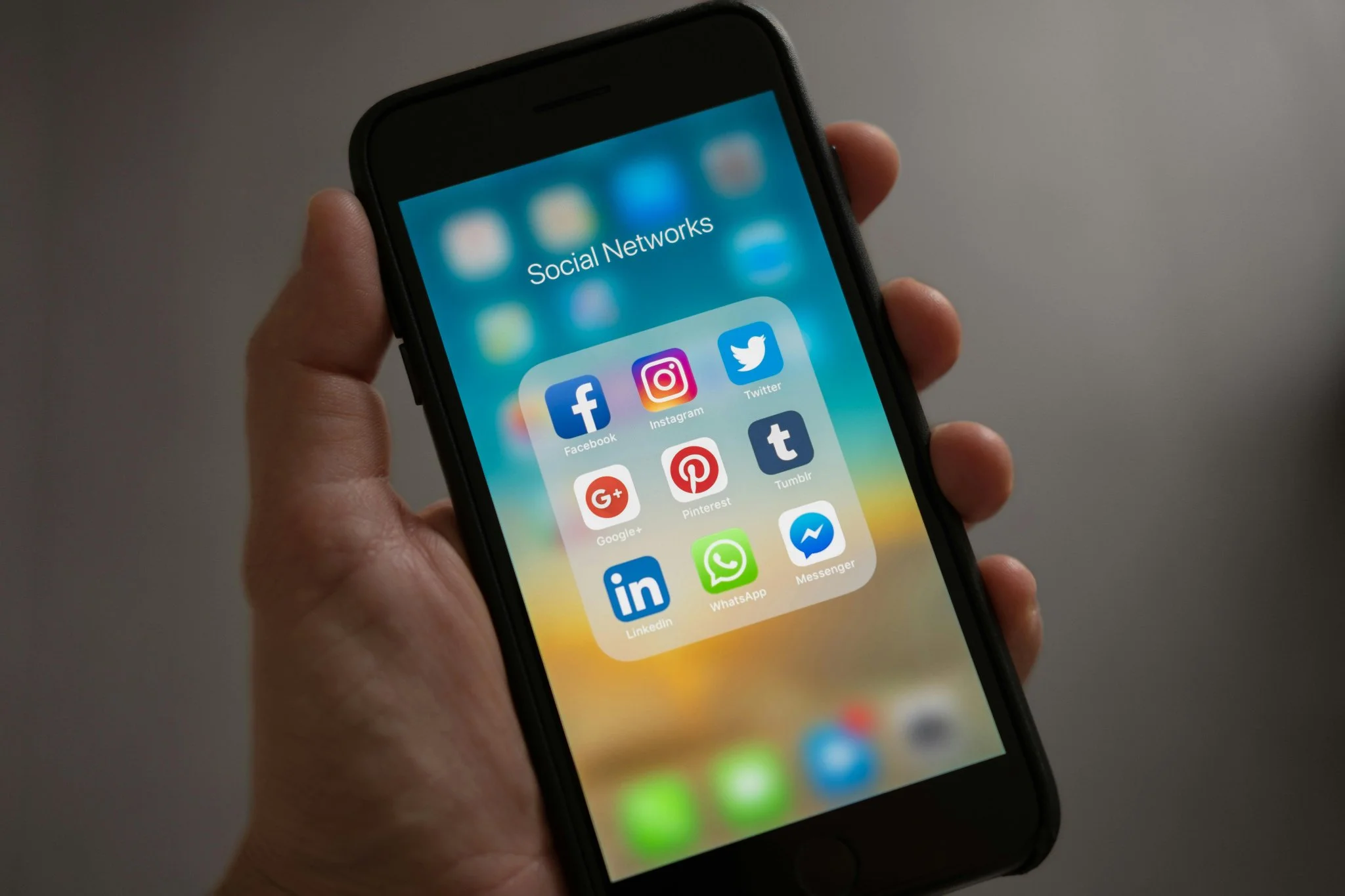The need for software development is becoming more and more common for so many companies, no matter what field they are a part of, and ready-made, basic software so often does not provide the best solutions for these businesses.
Custom software that is specifically tailored to suit your businesses needs is in growing demand, with the market valued at over 29 billion in 2023. This is simply because with software that provides you with individualized online experiences, solutions that account for growth potential, and streamlined system integration, there are greater benefits for your business.
Here you will find not only the top custom software development companies, but all of the information you need on software development agencies, including how to choose the right one for your business.
Provided Services
Depending on the specific company you choose to work with, the services provided will be different. The typical expectation for a good agency is that they will help you to realise your ideas by creating products that run without additional upkeep after launch. Essentially the firms are responsible for the whole lifecycle of the software.Here is a further look into some key services:
Discovery Services
The conceptualisation of a project can be difficult, so agencies providing services to help you through the discovery phase are there to use techniques like data analysis of the market, competitors and online potential customers or leads to determine what it is specifically that you actually need.
From this analysis they can also best inform you about which features will be most beneficial for you.
Development
Actually developing the product depending on the best software development solutions for the specific kind of business, whether it’s an older business with more processes or a startup, is a key service that you will need. Another component of development is building the application for different platforms like mobile, web and desktop, that are adapted to fit individual workflow requirements.
Integration
Ensuring that your new custom software works alongside the software you already have is critical to optimize workflow and prevent certain data from becoming lost or inaccessible. Integration with common tools like analytic platforms, ERPs and CRMs can be achieved through many different kinds of connectors, which keeps your software running seamlessly together after you have added something new.
Engagement
UX/UI design services are all about optimizing a product by making it engaging, easy to learn and convenient, allowing you to cut down on the time it takes to train people in using the software, and prevents resistance to it. Prototype building and adjusting the visuals and wireframe are part of this process.
Quality
Quality services ensure that the product is secure and that it is performing well. Load testing, manual and automatics testing, and security testing is conducted to make sure there are no bugs, and the software will run properly when it is actually being used.
Maintenance
Making sure that your product is functioning properly after it has launched is important, and support is provided by software product modernization companies that help you not only to fix problems with the software, but keep it up to date. This happens through updates and the enhancement and expansion of features like integrations and scaling infrastructure.
Operation & Development and the Cloud
To stop your business growth from being limited by software infrastructure, agencies are able to improve processing speed and elasticity by setting up CI/CD pipelines, containerized environments and cloud infrastructure so that it’s not isolated to one server.
Types of Software Development Agencies
Boutique Firms
The first type of software development agency is a boutique firm, which is typically a small agency. They typically work with start-up companies who are looking for a service that is customized to their business, and focuses on large scale, creative solutions.
They have an expertise in very specific customizations and niche or design-heavy work, meaning they are often specialized in engagement services like UX/UI and branding, and they work with specific technology, like AI, and create minimum valuable products.
Working with a smaller firm means having the advantage of extreme personalization and opportunities for collaboration. There are also drawbacks though, like a potential lack of knowledge about technology and scalability.
Technical Partners
The next type of agency, technical partners, are able to take over the entire software development process from start to finish dealing with everything from early data analysis, market research and strategizing to the actual design and building process all the way up to the launch of the product, and beyond when it comes to keeping it up to date.
If your business does not have internal resources to deal with technology or project management, or you want an experienced partner to help with turnaround time and scalability, then having a technical partner is probably the right call.
The benefits of working with a technical partner are that you have guidance from professionals, making the whole process easier, especially since they have all of the services that you will need, and the knowledge on scalability when conducting future planning. The costs however, and the lack of control, might be drawbacks for you when considering this.
Staffing Agency
The third type of agency is a staffing agency, which specializes strictly in providing trained staff who then work to develop, design and test software under the authority of the client themself.
If your business already has internal resources to dedicate to a software development project then this is a good option, because the business does not have to relinquish any control. The flexibility and lower costs can be a benefit as well.
The drawbacks to this however can be that these agencies do not provide strategy services or project and design management, meaning the quality and the timeframe of the project is dependent on your businesses leadership.
Choosing the Right Type
Deciding which type of agency is right for you depends mainly on how much of the project you are capable of taking on internally and what it is that you want to achieve with the custom software.
There are four essential questions to ask when choosing which is right for you:
1. Is development all that you need?
If you are looking for more than development and instead want an agency equipped to provide services like analysis, testing, and UI/UX design, boutique firms might be the way to go because they can provide such a customized service. Staffing firms would not in this case meet all of your needs.
2. Do you think you will develop an in-house team in the future?
If this is the case, then you are probably using a custom software development agency to build a foundation for your product, so you will want to work with either a boutique or managed agency so your team can stay involved and make the transfer of information easier.
3. Are you looking for guidance?
When it comes to product strategy you might not be sure what to prioritize in order to optimize your product. A technical partner would be the best choice here because they have the experience and personnel to help you formulate strategic plans and utilize the market data that they collect for you.
4. Will you have the capacity to manage all the needed resources?
If you have a management team that you feel can handle incoming staff that would be provided by a staffing agency, then this is the way to go. If not, it would be best to choose a boutique agency or a technical partner who can manage their work internally.
What to Look for in a Custom Software Development Company
After you have decided which type of agency best suits your business’s needs, it is time to pick a specific company to develop your custom software. When you are doing this, there are some key components that you should check to see if that company is right for you.
Feedback - reading the testimonials of previous clients can help you assess the quality of the agency
Experience - if the agency has experience with software development in your specific industry, they can provide valuable insights into your project
Support - using an agency that is willing to provide upgrades and maintenance past the launch date means your product will last longer
Communication - knowing essential information about the agency like where they are located, how they will contact you and how quickly they will respond is important. Working with a responsive agency with similar hours as your business can be very beneficial
Expertise - this is as simple as determining if the agency has experience with platform, languages and frameworks that you want to use
Development Methodology - many companies will follow methodologies like Scrum, DevOps or Agile for the best results. Asking about the tools they use to manage their projects and how adaptable they are helps to get a better idea of the agency
Case Studies and Portfolio - looking at examples of past work can give you an idea of the standards and quality of an agency and how much value they create with their software
Top 20 Custom Software Development Companies
1. ISU Corp
ISU Corp takes the top spot for their ability to build reliable, high quality custom software with strong AI capabilities. They work closely with clients as a technology partner, helping shape the product from the early planning stages through development and ongoing support. Their experience with organizations like General Electric, Manulife, and the University of Waterloo demonstrates their ability to deliver secure and scalable solutions across financial services, industrial operations, and technology sectors.
With over 19 years of experience, they offer full end-to-end development along with legacy upgrades, cloud solutions, digital transformation, and AI integration. ISU Corp is a strong choice for mid-size and enterprise companies, as well as funded startups, that want reliable delivery, clear communication, and long term support.
Based in: Canada & U.S.A
2. Instinctools
Known for taking on complex projects, Instinctools prioritises communication with the client and the discovery phase to make sure your product is meeting your business needs.
With a specialisation in enterprise applications, custom software and cloud solutions, they have done projects for businesses in education, finance, healthcare and automotive industries, and are able to provide management and technical services.
Based in: Germany
3. Naked Development
Taking the client through the entire development process from start to finish and prioritizing design and marketability as well as technology in order to boost engagement is what sets Naked Gun apart from other agencies.
Specialising in mobile app and software solutions they provide design, UX/UI, development and after-launch services, making this a good firm for businesses in the social platforms, e-commerce and consumer apps industries, especially because of their focus on marketability.
Based in: California
4. Unified Infotech
Engagement is a huge priority of Unified Infotech, and because of this, they are able to use their expertise to inform the design and usability of your software in order to improve adoption rates, especially for customers.
Specialising in mobile app development and web solutions, their product strategy and UX/UI services make this a great company for businesses in e-commerce, healthcare, fintech or media. They create reliable products where the technological decisions are impacted by strategy.
Based in: New York
5. IIH Global
IIH Global creates apps, software and websites for businesses in e-commerce, IT and gambling, and they take care of the whole development process, providing testing services and support along with development services.
Headquarters: England
6. BoTrees Technology
BoTrees Technology prioritizes collaboration with the client, meaning that they are well equipped to guide you through the creation process of your mobile, web or AI based application, even if you are a startup.
With a foundational knowledge of machine learning frameworks, and common ones like Python, they have technical skill and a capacity to help with scalability for businesses in fintech, retail, logistics and healthcare.
Based in: U.S.A, India
7. Simform
Simform deems itself a digital project engineering company and they thrive by appealing to businesses in the logistics, retail and healthcare fields because of their ability to produce a product where the code, structure and technological decisions are informed by strategy.
No matter the size of your project, its global delivery model ensures that big programs are achievable, accounting for scalability.Simform is a good option for well established companies and startups, and they provide software development along with DevOps and AI specific services and cloud migration.
Headquarters: U.S.A
8. Dashbouquet
Well-versed in various frameworks, Dashbouquet provides software testing and UX/UI design services as well as web and mobile app development. They are a good fit for smaller businesses in e-commerce, HR, finance and healthcare.
Headquarters: Estonia
9. Closeloop Technologies
Working well with established businesses and startups alike, Closeloop Technologies has a focus on software and custom app development, all while building lasting relationships with their clients by staying on top of maintenance and updates to keep your product up to date.
Common services they provide deal with web platforms, usability, cloud integrations, mobile apps, scalability and industry tools.
Based in: California
10. Anadea
Anadea is well known for their ability to evolve along with your ideas and needs as they change throughout the creation of your software, and they pride themselves on the long-term relationships they build with clients as they provide a high quality service at a lower cost.
They specialize in mobile apps, e-learning platforms and custom business applications which appeal to businesses in education, healthcare, finance and real estate, and they also work with a variety of frameworks (Python, Java, etc).
Based in: Europe
11. Rocket Code
Rocket Code integrates AI into the software that they develop, making this a great company for you if efficiency is a core goal within your software. They specialize in web and mobile app development, online marketing strategies and the development of AI platforms.
Headquarters: Mexico
12. Computools
Specialising in healthcare software, loT, enterprise solutions and fintech, Computools is set apart by their prioritisation of data analysis and product strategy, and their ability to use the information they learn from those sources to guide the creation of the project, all while remaining as cost-effective as possible.
Based: Worldwide
13. ScienceSoft
ScienceSoft focuses on software integration and web and mobile app development. They provide IT consulting, data analytics, AI, cloud solutions, cybersecurity and custom software development services.
Headquarters: Texas
14. BairesDev
BairesDev prides themselves on the technical expertise of their staff and the speed and adaptability of their service. They specialize in custom software, web and mobile app development; AI; DevOps; and cloud computing.
Headquarters: San Francisco
15. Intellectsoft
As a company with seniority in the custom software development field, Intellectsoft is able to provide services throughout the whole process, from prototypes to after the launch, utilizing their knowledge in loT and blockchain, all to create a platform that is engaging, scalable, and different from your competitors.
They have worked with businesses in hospitality, fintech, construction and healthcare in both a consulting capacity and in mobile application development.
Headquarters: Palo Alto
16. Mercury Development
Mercury Development is one of the most senior companies on this list, and they specialize in web and cross-platform applications, and IOS and Android mobile app development. Due to their extensive experience, they are equipped to provide reliable, high-quality services to a wide variety of industries.
Based in: U.S.A
17. Leanware
Leanware is a great option for any smaller business looking for a company that can evolve along with your business needs, and with a lot of experience in different frameworks like React and Python, product engineering and cloud solutions.
The main advantages of working with them is that they are constantly taking machine learning into account throughout development, and they outsource software development to somewhere close to your location, making communication easier.
Based in: U.S.A
18. SDLC Corp
SDLC Corp has gained a positive reputation among startup companies for prioritizing emerging technologies, specifically providing services dealing with blockchain integrations and cross-platform app development and AI. Due to their modern approach, they are popular with businesses in e-commerce, real estate and healthcare.
Based in: India
19. Vega IT
Vega IT focuses on creating scalable products that offer effective solutions. They provide software planning, design, development and testing services that allow for the formation of software that enhances the workflow and processes of businesses in many industries.
Headquarters: Serbia
20. Queppelin
Queppelin is well known for their focus on developing web and mobile applications, XR solutions, AR/VR and metaverse platforms all impacted by a future-facing outlook. With a specialisation in new and immersive technology this is an agency equipped to deal with cutting-edge software concepts.
Based in: India
For B2B Leaders Looking to Scale
If you're a B2B leader or tech company investing in custom software, there's a good chance you're also thinking about brand authority, trust, and demand generation. One of the strongest ways to support a software product launch or elevate your company’s market positioning is through a branded B2B podcast.
At Jony Studios, we help B2B companies turn their expertise into an ongoing podcast and a content engine that drives blogs, social clips, and thought leadership without adding extra work to your team.
If you're looking to strengthen your digital presence alongside your software growth, this can be a powerful next step.
Conclusion
Custom software development is only going to continue to grow in popularity for businesses in every industry, so knowing how to pick the best company for your needs has never been more important.
After reading this list you now know a variety of companies who can meet your expectations and personalize software to help you optimize processes and workflow!
Did you find this list helpful? If you did, let me know!
Written by Eva Geimer
-
Jony Studios is a content marketing agency specializing in B2B podcasting and audiobook services. They have worked with many clients, from startups to larger organizations such as Penguin Random House, Amazon, University of Waterloo, Freakonomics Radio, and many others.













